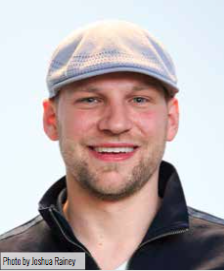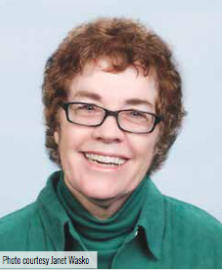The Cinema Studies Program is an interdisciplinary major with faculty from the College of Arts and Sciences, the School of Architecture and Allied Arts, and the School of Journalism and Communication. The curriculum includes courses taught from each college with faculty members who have a diverse range of research interests in film and media studies.
Priscilla PEÑA OVALLE
Priscilla Peña Ovalle joined the UO English Department in 2006 after earning her PhD at the University of Southern California’s School of Cinematic Arts. Ovalle’s research focuses on mainstream U.S. popular culture. By exploring the everyday images we take for granted, Ovalle finds complex stories about nation, race, and sexuality. Her first book, Dance and the Hollywood Latina: Race, Sex, and Stardom, was the result of a simple question: Why do Latinas on film and television always seem to be compulsive dancers? Research revealed that every Latina star in Hollywood—from Rita Hayworth in the 1940s to Jennifer Lopez in the 2000s—was discovered or known as a dancer. Since the silent era, Latinas have been expected to dance; this history tells the story of U.S.-Latin American relations and contemporary formations of race in popular culture. Ovalle is now working on the history of hair in mainstream media. Examining the production and depiction of specific hairstyles on U.S. television, Ovalle now asks why redheaded women like Lucille Ball, Carol Burnett, and Kimmy Schmidt seem to be extra zany—or why we only talk about the so-called excessive hairstyles of famous men like Elvis, The Beatles, 80s hair bands, or Justin Bieber.
Ovalle was trained in film and new media production as well as critical media studies and is committed to teaching classes that intersect theory and practice. Whether teaching fundamental classes like “Media Aesthetics” and “History of Motion Pictures” or upper-division classes like “Race, Sex, and Stardom,” Ovalle challenges students to build their critical thinking, production, and research skills as crucial aspects of humanities-oriented or filmmaking careers. As an Associate Professor and the Associate Director of the Cinema Studies Program, Ovalle is thrilled to work with a team of program faculty committed to developing unique learning opportunities for Cinema Studies students.
ANDRÉ SIROIS
In a young, fast-moving program like Cinema Studies, faculty and staff often wear more than one hat. No one better exemplifies this than Cinema Studies Career Instructor Dr. André Sirois, also known as “DJ food stamp” and “The Real Dr. dRé™.” As these monikers suggest, Sirois’s professional, creative, and research interests in media focus on the making of music.
With a PhD in Communications from Oregon, Sirois’s research concentrates on the nature of technical and cultural innovation, specifically as they relate to DJ culture. His work on this subject, including a forthcoming book entitled Hip Hop DJs and the Evolution of Technology: Cultural Exchange, Innovation, and Democratization, addresses the relationship between DJ culture and the industries that serve it and focuses on the manipulation, exchange, and rights associated with intellectual properties. This interest in the intersection of creative work and intellectual property led to Cinema Studies’ newest course offering, “Remix Cultures,” which introduces students to the ways in which medias both visual and sonic are continually mixed and repurposed across time and space. Sirois has created several new classes for the program, ranging from the critical studies television course “South Park and Society” to digital production courses like “Sound for Screens” and “DSLR Filmmaking” to “Indie Film,” which collaborated with Cinema Studies screenwriting classes, the School of Music and Dance, the Dept. of Theater Arts, LCC, and the Eugene community to create three student-produced short films.
Whether it’s working with students to write papers or to make films, Sirois’s passion and enthusiasm for Cinema Studies is contagious. He has played an invaluable role in the growth and evolution of the program.
DANIEL Steinhart
Joining Oregon faculty in 2014, Assistant Professor Daniel Steinhart represents the first joint hire between Cinema Studies and the School of Journalism and Communication (SOJC). In seeking a candidate to share with the program’s colleagues in SOJC, Cinema Studies hoped to find someone who could build on its existing strengths in both global cinema and the study of film as an industry. In Steinhart, Cinema Studies was lucky enough to find the perfect match.
Steinhart received his PhD from UCLA and focuses his research and teaching on global Hollywood production, film form, and style as well as on contemporary international art cinema. His research investigates how Hollywood studios pushed across the world to create a globalized production industry from the late 1940s to the early 1960s. This work, which Steinhart is currently developing for his first book, also examines the artistic choices that arose when Hollywood filmmakers of the period confronted the various challenges of foreign location shooting. Steinhart’s work to understand Hollywood as an industry has been recognized by a number of prestigious grants, including a Fulbright Fellowship to do relevant studio research in France. Although his primary research is about Hollywood films made abroad over fifty years ago, Steinhart has a background in both film programming and film journalism. He brings to the program a true cinephile’s delight in a diverse set of much smaller films made all over the world and often only to be found in film festivals and art houses. It is this mix—a focus on filmmaking past and present and a passion for movies big and small—that makes Steinhart such a great addition to UO Cinema Studies.
Janet Wasko
Although the University of Oregon’s Cinema Studies Program is only five years old, some of its best faculty have been researching, writing, and teaching about film and media for a whole lot longer. Janet Wasko, Professor and Knight Chair in Communication Research, arrived at the university in 1986 and has been an “impact scholar” in her field for decades, well before the first Cinema Studies major arrived on campus.
A prolific author, editor, and co-editor of almost twenty books, including How Hollywood Works and the widely influential Understanding Disney, Wasko defines her work as political economics of the media, especially as related to the film industry. Her analytical approach challenges established assumptions and popular myths about the media while promoting democratic and egalitarian media activities by both media producers and consumers. For instance, her seminal research on all things Disney is intended to challenge various popular and institutional myths about Walt Disney and the Disney Company through historical and political economic analysis as well as by examining Disney’s products and audiences.
One of the founders of the Cinema Studies Program, Wasko is the current president of the International Association for Media and Communication Research. A longtime standout in her field and a leader both on and off campus, Wasko is a crucial member of Oregon’s Cinema Studies Program and, perhaps even more importantly, an always generous mentor to both the students and junior faculty.




